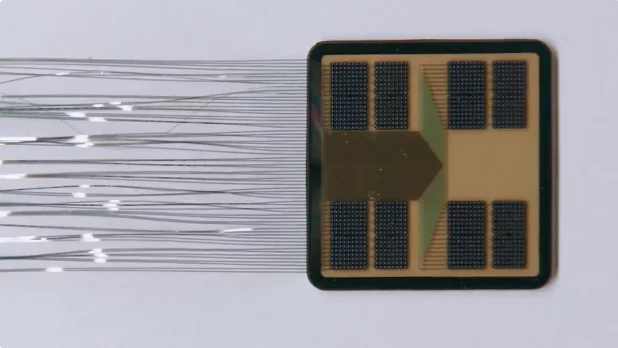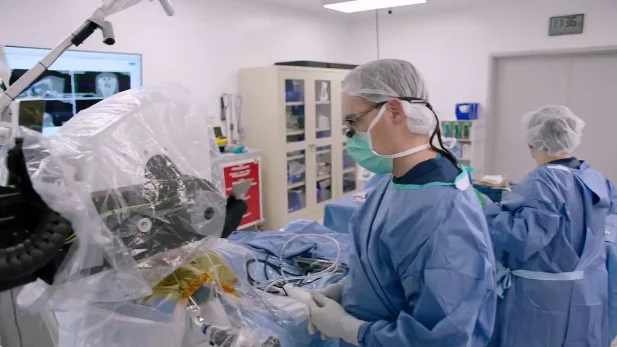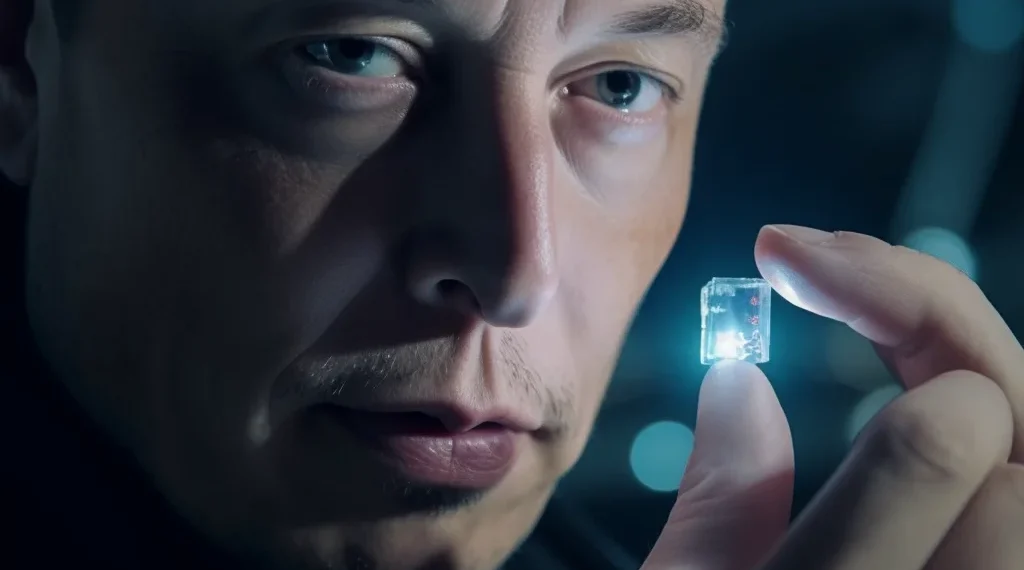American supervisory authorities have finally authorized Neuralink, a company developing brain implants, to proceed to human experiments. Its experts are in a hurry, but Neuralink founder Elon Musk believes that it is worth it: in his opinion, such technology is necessary for mankind to win the coming war with robots. Meanwhile, other companies have already started implanting chips into the brain without too much hype.
Elon Musk promises to implant chips in tens of thousands of people to keep humanity from falling behind the machines
Neuralink has recently begun selecting subjects to be implanted with the first implants. This happened much later than expected. At Neuralink’s first presentation, Elon Musk promised that trials of the technology would begin as early as 2020. It seems that he underestimated the complexity of the problem that his experts had to solve.
The first 11 operations are expected to take place next year. If all goes according to plan, their number will be rapidly increased. In 2025, 26 patients will receive chips in 2025, 79 people will be operated on in 2026, and as many as 499 patients will be operated on in 2027. By 2030, Neuralink plans to implant brain implants in tens of thousands of people.
Although almost nothing is known about the technology, there are plenty of people willing to try it. The author of Bloomberg, who has been in close contact with Neuralink’s management, claims that thousands of people are ready to go to the operating table
Most likely, such excitement is due to the popularity of billionaire Elon Musk. In his terms, brain implants are fantastic devices in the spirit of the movie “The Matrix”. You go to Neuralink, wait 15 minutes, and you are already a superhuman, remembering Wikipedia by heart and downloading any languages and skills into your brain in a minute.
As Bloomberg writes, at a meeting with Neuralink employees in September 2022, Musk said that we need to work at a speed as if “the world is about to end.” Because, in his opinion, that’s exactly the case. Machines are getting smarter and will inevitably surpass ordinary people. After that, only a chip in the brain will be able to resist them. “We have to get there before artificial intelligence wins,” Musk says.

Among the side effects, Neuralink reports mention partial paralysis and cerebral edema
Neuralink’s actual plans and technology differ markedly from Musk’s fantasies. To install the chip, a special robot opens the skull and implants more than a thousand electrodes directly into the brain. The hole in the bone is plugged with a coin-sized chip that decodes neuron signals using machine learning algorithms.
This is an expensive and dangerous operation, so the device will remain in the brain for many years – and, of course, will become obsolete by the minute. At the same time, the built-in battery will have to be recharged every few hours.
The first prototypes of Neuralink are mainly intended for people with severe illnesses. The company announced that in 2024 it plans to operate mainly on volunteers who are paralyzed in all four limbs. In their situation, even such imperfect devices can help. Downloading skills into the brain and other fantastic excesses are out of the question.

It’s such an unproven technology that it’s unclear whether Neuralink chips will work at all, and what happens if they break down
So far, the firm has only tested the chips on animals – sheep, pigs and rhesus macaques. According to Wired, Neuralink reports mention partial paralysis, diarrhea with blood and brain swelling in the list of side effects.
In one monkey that was implanted with a Neuralink chip, the chip mount loosened and damaged its skull. In another, the chip simply fell off and pathogens proliferated in its brain. The third was clearly in agony, scratching her head until it bled and lying on the floor for long periods of time. In the last days of her life, she never left her neighbor’s side and held hands with her all the time.
About 50 people are already using the brain implants of Elon Musk’s competitors
Skeptics suspect that Musk’s haste is not at all related to the threat of artificial intelligence. In fact, he is worried about competitors who are significantly ahead of Neuralink. While his company is only preparing for human experiments, they have already implanted their chips in about 50 patients – and without terrible side effects.
In the U.S. alone, there are no less than 37 companies that are developing technologies to connect the brain to a computer. Last year they managed to attract investments worth more than 560 million dollars. Similar research is underway in other parts of the world, particularly in Western Europe and China.
Devices from other developers tend to use fewer electrodes than Neuralink. For example, Blackrock Neurotech and Paradromics chips are connected to neurons not by a thousand, but only a few hundred electrodes. However, at the same time, matrices with electrodes can be connected in several brain regions at once.















